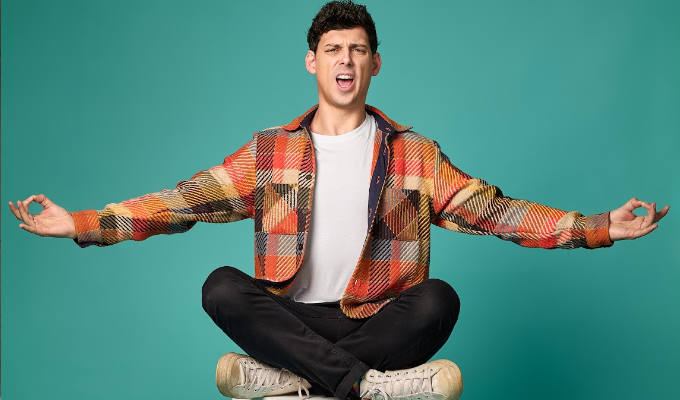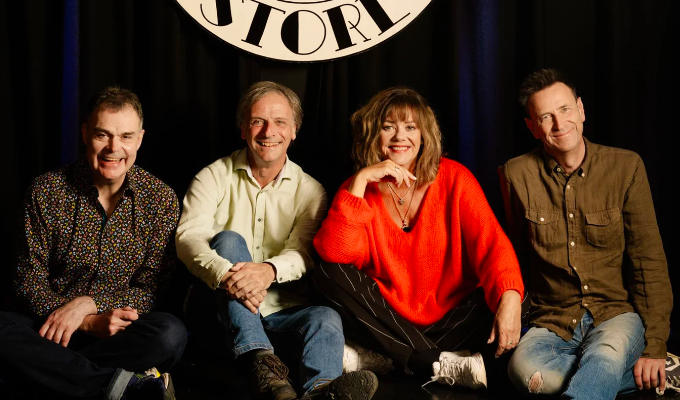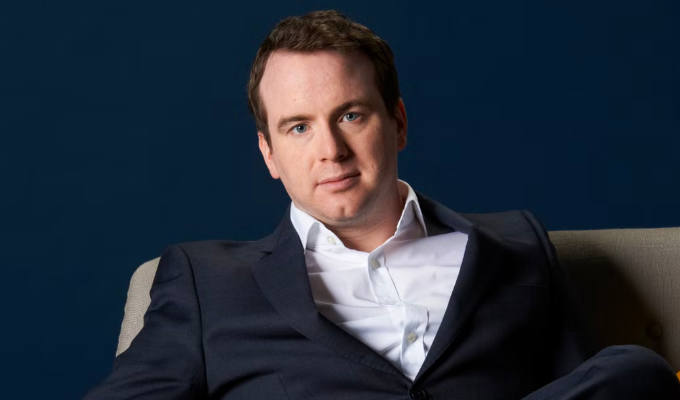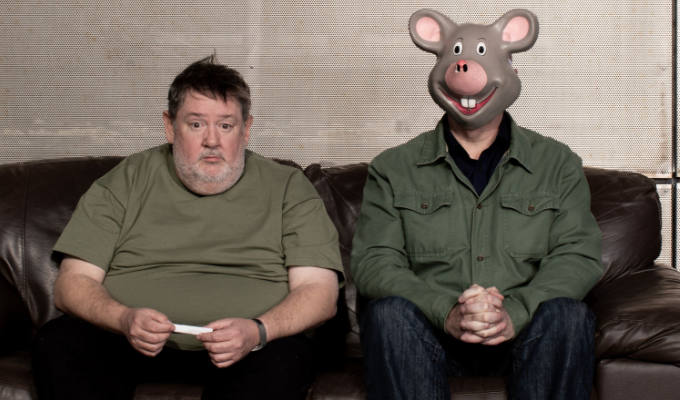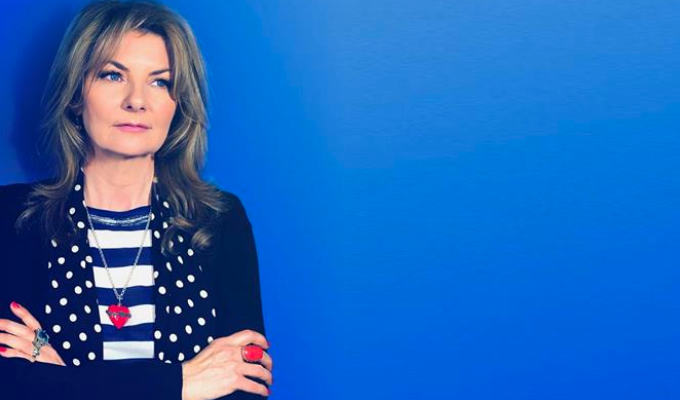
How I've struggled to fit in, starting stand-up as a middle-aged woman
Jo Prendergast sees people like her in the audience - but not the green rooms - of comedy clubs
The DJ was pumping out the tunes and I was busting out some sick dance moves at the New Zealand International Comedy Festival after party. As I stopped for a sip of water, I looked around the room. I was the only person there over 50. I suddenly felt like the embarrassing mum from Mean Girls, hanging around, being annoying and handing out condoms. That’s an exaggeration by the way; while I often provide relationship advice to younger comedians I draw the line at condom dispensing.
I felt a similar way a few weeks earlier, at the artist’s bar at the Melbourne Comedy Festival. I’d chatted to lots of lovely Gen Z and millennial comedians but perhaps they were just being polite, as though I were a weird friend’s mum trying to be BFFs. The only comedians my age at that artist bar had been big name superstars, many who had been in the comedy game for decades.
As a teenager I’d dreamed of being an actor but had chosen medical school over drama school as it seemed a more sensible option. At medical school I found I only wanted to talk with people, so I became a psychiatrist. In 2021 Harper Collins commissioned me to write an entertaining mental health book, so I became an author as well.
Throughout my life I’d dabbled in amateur theatre, and I’d had a few TV and film roles. I’d fallen in love with the ‘devil’s comedy’, improv and had ‘yes and-ed’ with joy since the 1990s. But stand-up comedy looked as terrifying as bungy jumping and I’d had no plans to try either. In 2017 a comedy producer heard me bantering with the cast on a TV pilot set and suggested I give a first-timers comedy competition a go. I said, ‘no way’ but a few weeks later I did my first comedy set. I’m not very assertive.
I started comedy at 48. At first, I felt valued and included as a newbie comedian. Being an older woman seemed to be an asset in my local town’s comedy scene. I ticked two diversity boxes for the millennial producers: woman and old. I noticed that I was often the only woman on the line-up as I gigged around New Zealand. The audiences were usually full of women who seemed to love me. As did men in their 20s, perhaps that was a MILF thing!
But then I moved up the comedy ladder and started to do curated festivals and applied for emerging comedian programmes and awards. I began to feel like an outsider and sensed some ageism. I wasn’t some hot, young, exciting talent. I was a menopausal woman, seemingly one foot in the grave. The only thing hot about me these days was my body thermostat malfunctioning. And I was about as exciting as building flat pack furniture.
I wondered how the wider comedy industry viewed me. Maybe they thought I wasn’t long for this world and not worth investing in. Or that I was too outdated, vanilla and privileged to be relevant. Perhaps I was seen as a successful medical specialist and author who didn’t need the validation of awards or the support of mentoring. Or that if I had been really serious about comedy, I would have been up on stage by the 1990s. I wasn’t a struggling young artist; I was a middle-aged homeowner. I was the cliché of a square peg in a round hole. A 55-year-old emerging comedian in an industry designed for millennials.
My debut comedy hour is about trying to be cool to impress young people. It was ironic that my comedy content on stage was also becoming the reality of my green room life. Here I was trying to be ‘chill, lit and Gucci AF’ backstage with the comedy cool kids. This felt harder than impressing my own teenagers, as I had resignedly accepted that my kids would roll their eyes at me. These cool, big city millennials were now my work colleagues. But they were their own tight-knit social group who had grown up doing comedy together. They were a clique where no one had menopausal hormone levels. They were hot, but not hot flush hot.
It felt like I was back in high school; hanging out on the edge of the cool kid’s group, hoping to be asked if I want to play. They were the cool kids who ask other cool kids to be on their cool comedy gigs. Or to meet for coffee or go sightseeing at festivals. I had to face that I was always going to be on the periphery of the social world of this cool, young comedian scene. Even though they were my emerging comedian colleagues.
But I couldn’t really be part of the professional middle-aged comedian scene either. These people were generally the super stars of comedy. They had paved the way for us newbies to walk. Hanging around with them made me feel like I was trying to climb the comedy ladder. It seemed hard to form genuine relationships, except with those lower down the ladder than I was. It made the social side of my medical career seem so much less complicated. I was at the established, middle-aged ‘superstar’ level of medicine. It felt weird starting from the bottom of the ladder again.
My self-funded comedy mentor told me I had reached the tricky middle zone of the comedy ladder. I was past the beginner stage where kindly comedians would take me under their wing. But I wasn’t established enough for people to want to try and impress me. I was a potential threat but hadn’t reached big star glory. I was floating around in the middle-aged, middle comedy zone. Maybe this was why I suddenly felt alone?
It was like I had hit some sort of comedy glass ceiling. Where I’m good enough to sell out shows at festivals but not exciting, emerging comedian material for the big gigs and TV opportunities. I look at the TV panel shows and there are lots of women on them now. Generally hot, young women. The only women my age are the superstars who have grown older doing comedy. I look at the comedy festival galas. There are lots of women. Generally hot, young women. Where are the equally talented, emerging middle-aged women? The hot flush women?
My comedy shows sell like hot cakes in the regional areas as women see someone like them on the posters. The audiences say how awesome it is to see an older woman touring there. And performing shows that are relevant for them. I look at the comedy audiences at the big festival galas and there are lots of women like me. Middle-aged women who have the organisational skills and funds to buy tickets. But do these middle-aged women see themselves represented on stage? Not often.
I’ve found performing comedy a challenge at times as it takes stamina, physical and mental resilience, sacrifice, and lots of late nights. Some days I have the resilience of a tropical flower in a Scottish winter and feel like heading to bed after the 6pm news! I definitely need to pace myself with long show seasons and late nights at festivals.
But I’ve found there are advantages to starting a comedy career later in life. Comedy requires a thick skin. My skin not only has the wrinkles of an elephant but also the thickness. My soul is not crushed because one critic says I’m too woke, not woke enough or barely awake.
As an older comedian, I have lots of life to generate material from; many decades of disasters to tap into. I have content that’s relatable to older audiences. Tales of parenting, bladder leakage and hot flushes make middle-aged women in the audience light up. They feel seen when their stories are told; by someone their age.
I’ve talked with other older women who are emerging comedians. There’s a common theme of feeling alone and aged out of some opportunities. Women reported ‘an overwhelming sense of not truly belonging… I can’t figure out where I fit in… it would be nice to be included on line-ups with the cool kids… I felt like an outsider and wasn’t worthy of conversation.’ It’s no wonder so few of us persist with comedy.
But that’s a loss as older women bring our perspective to the stage. We create diversity in lineups of millennial men. We can get away with things that other people can’t. In my second show I have a 15-minute set about vaginal atrophy; my vaginal funeral skit goes down a treat! I’m inspired by the Miriam Margoles of the world, who get wilder and more hilarious as they age!
So, here I am, travelling across the world and performing my debut solo hour at Fringe. Hopefully showing other middle-aged, emerging comedians what determination and resilience can do. And inspiring other older women to keep going!
And now that I’m officially ‘over the hill’, I plan to run down that hill telling jokes - in a red dress with a microphone! I will follow my teenage dreams of a life on stage – because YOLO – you only live once!
• Dr Jo Prendergast is performing her debut show The Cool Mum at Gilded Balloon Patter House at 1pm. Her book When Life Sucks was released in the UK in June.
» Comedy's not ageist? Don't make me laugh! An opinion piece from the 2023 Edinburgh Fringe.
Published: 8 Aug 2024

